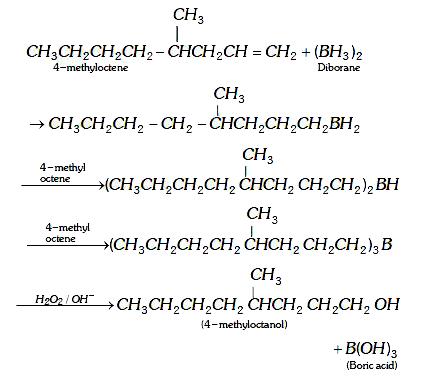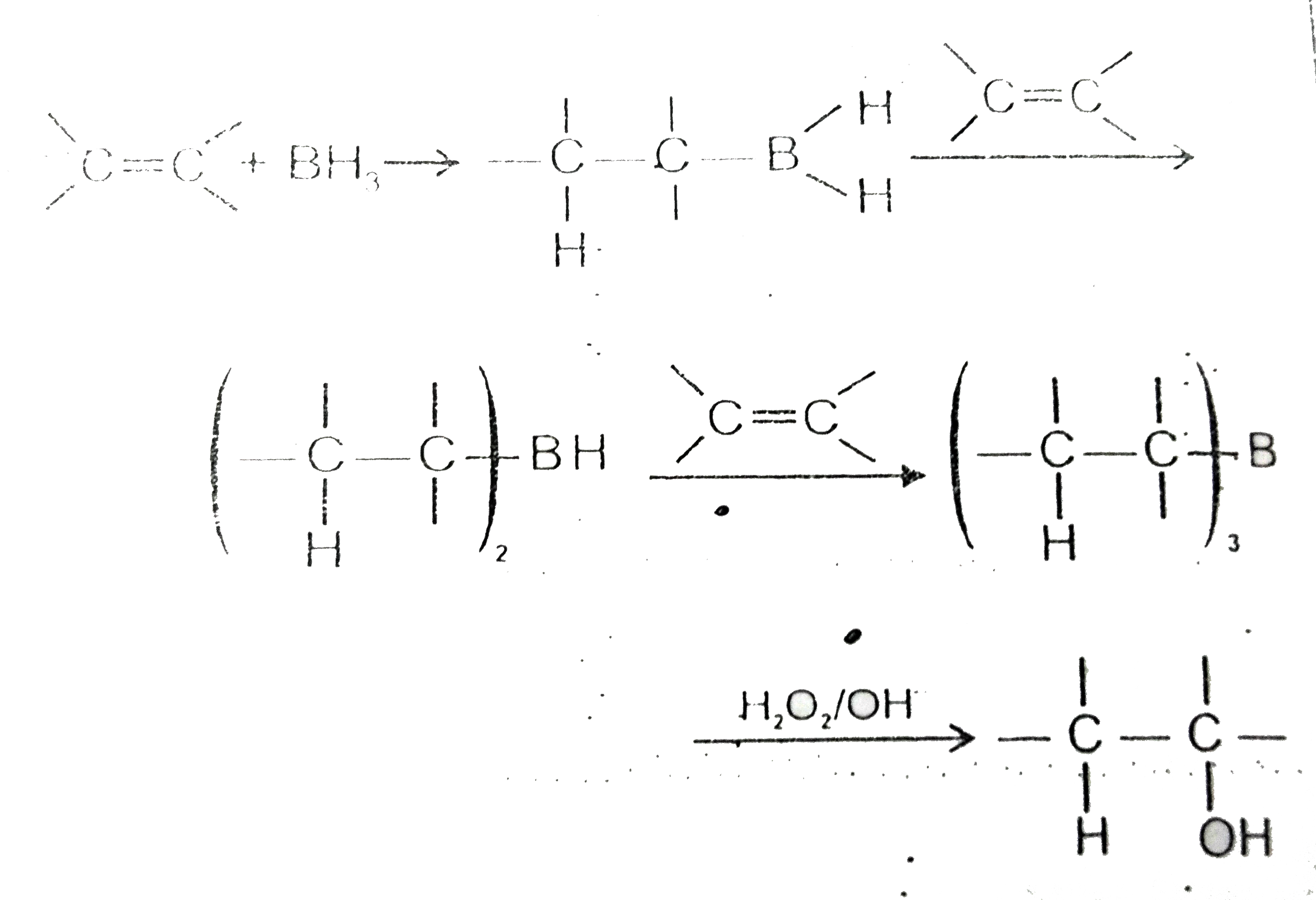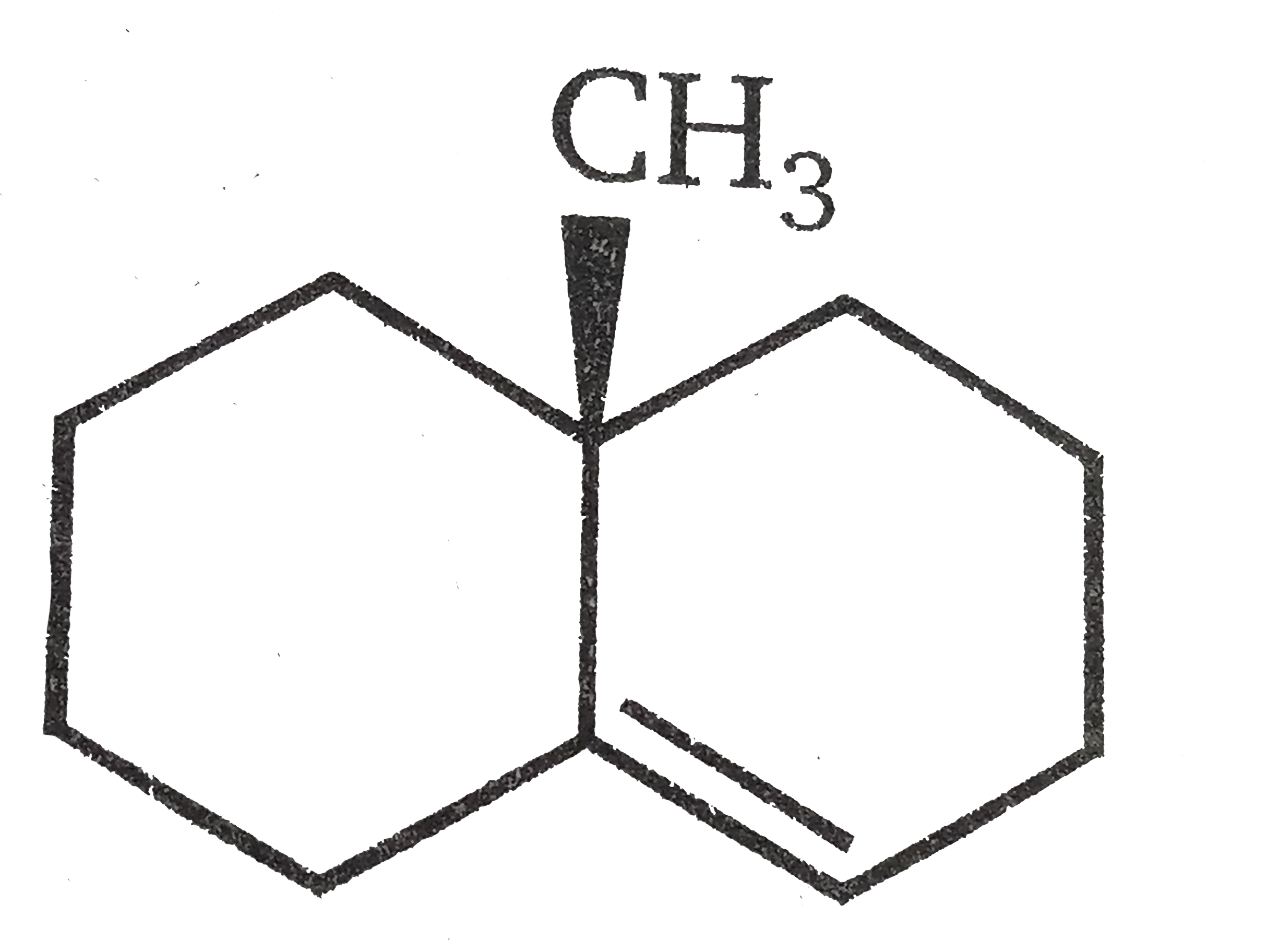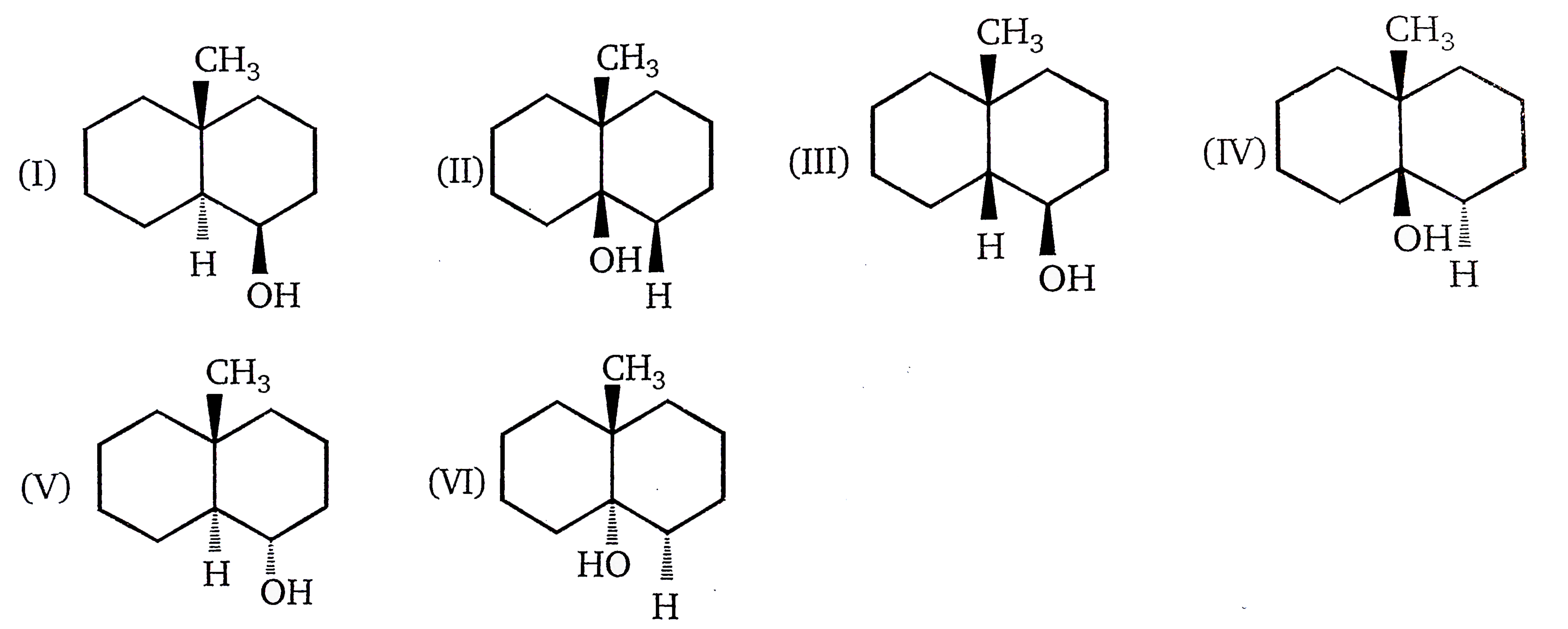Hydroboration oxidation of 4-methyl octene would give
A
4–methyloctanol
B
2–methyldecane
C
4–methylheptanol
D
4–methyl–2–octanone
Video Solution
Text Solution
The correct Answer is:A
To obtain alkan–1–ol from alk–1–ene, the following procedure should be adopted. Alk–1–ene is treated first with diborane. The boron compound formed is then reacted with H2O2 to get the desired alcohol (hydroboration oxidation).

The overall result of the above reaction, appears to be anti–Markownikoff’s addition of water (hydration) to a double bond (Hydroboration oxidation).
|
Topper's Solved these Questions
- HYDROCARBONSBOOK - ERRORLESSCHAPTER - HYDROCARBONSEXERCISE - NCERT BASED QUESTION (ALKYNE)
67 Videos
- HYDROCARBONSBOOK - ERRORLESSCHAPTER - HYDROCARBONSEXERCISE - NCERT BASED QUESTION (AROMATIC HYDROCARBON)
78 Videos
- HYDROCARBONSBOOK - ERRORLESSCHAPTER - HYDROCARBONSEXERCISE - ASSERTION & REASON
18 Videos
- GENERAL ORGANIC CHEMISTRY BOOK - ERRORLESSCHAPTER - GENERAL ORGANIC CHEMISTRY EXERCISE - ASSERTION AND REASON
14 Videos
- HYDROGENBOOK - ERRORLESSCHAPTER - HYDROGENEXERCISE - ASSERTION & REASON
6 Videos
Similar Questions
Addition of water molecule across double bond to yield Antimarkownikov's product. Can be accomplished by Hydroboration followed by oxidation. Reaction follows as:

Product of hydroboration oxidation of 1-methyl cyclopentene is
View SolutionThe major product formed during the hydroboration-oxidation of 1-methylcyclopentene is-
View Solution
Knowledge Check
Hydroboration oxidation of 4-methyl octene would give
A4 methyloctanolB2-methyldecaneC4-methylheptanolD4-methyl-2-octanoneHydroboration oxidation of 3-methyl but-1-ene gives
A3-methylbutan-2-olB2-methylbutan-2-olC3-methylbutan-1-olD2-methylbutan-1-olThe hydroboration oxidation of 2-methyl propene yields-
A1∘ alcoholB2∘ alcoholC3∘ alcoholDNone
The major product formed during hydroboration oxidation of 1-methylcyclopentene is
View SolutionHydroboration oxidation of alkene give
View SolutionHydroboration oxidation of propene produces
View SolutionHydroboration-oxidation of alkenes gives
View SolutionWhat are the products obtained on hydroboration-oxidation of the given alkene


View Solution
